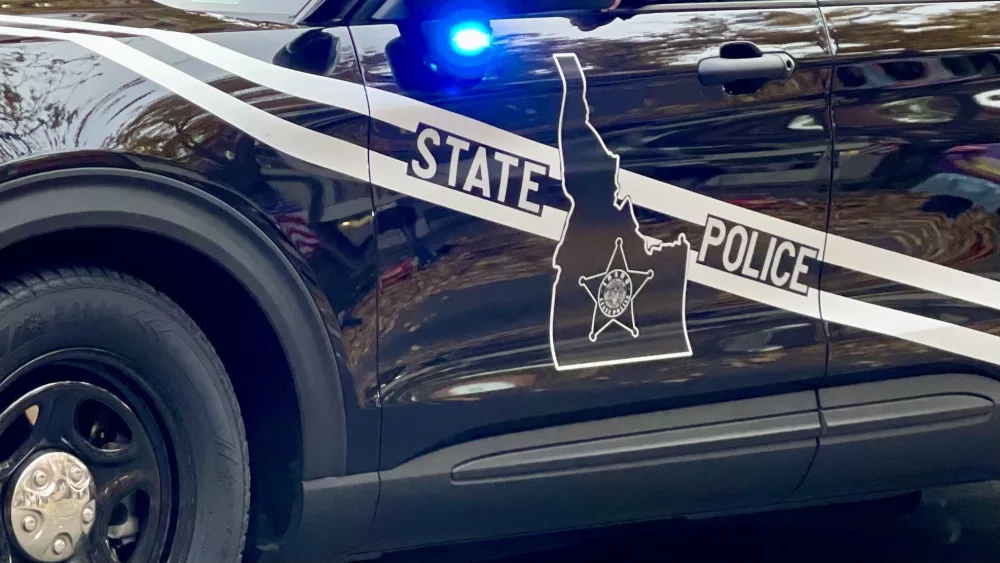(The Center Square) – Two Republican leaders in the Washington State Senate talked with The Center Square about their party’s plans for the 2023 legislative session that starts Monday: Sen. John Braun, R-Centralia, leader of the Senate Republican Caucus, and Sen. Lynda Wilson, R-Vancouver, ranking member on the Senate Ways & Means Committee.
How far Republicans get with their agenda during this year’s 105-day session remains to be seen, given Democrats retain control of both chambers of the Legislature.
BROAD-BASED TAX RELIEF
Both senators were skeptical Democrats would move on general tax relief – such as a cut in the state sales tax or a lowering of property taxes – that Republicans have been pushing for at a time of high inflation and a possible looming recession.
“I’d call it highly unlikely,” Braun said, noting that the majority party is uninterested in broad-based tax cuts.
Targeted tax cuts are enough for Democrats, Wilson surmised, “because, you know, they’ve already done what they think they need to do” via the business and occupation tax exemption and the Working Families Tax Credit that both go into effect this year, the latter of which “amounts to about $100 a year for these small businesses.”
The Working Families Tax Credit will distribute $300 to $1,200 to those who qualify, while the business and occupation tax is eliminated for businesses making less than $125,000 in gross receipts.
“Fundamentally, if they have a single dollar they believe they can spend it more wisely than the general public can,” Braun said of Democrats.
EMERGENCY POWERS REFORM
This year, Republicans plan to take another shot at emergency powers reform, which failed during last year’s session.
Gov. Jay Inslee ended his COVID-19 state of emergency on Oct. 31, 2022, after 975 days of it being in effect.
Wilson and co-sponsor Mark Mullet, D-Issaquah, have pre-filed a bill that mandates “four corners would have to vote…to extend any orders.”
Senate Bill 5063 would allow an in-session Legislature to pass a concurrent resolution terminating an emergency declaration.
It would also allow all four members of the House and Senate leadership the ability to terminate an emergency declaration in writing when the Legislature is out of session and more than 90 days have passed since the declaration.
Finally, the legislation would require restrictive declarations and suspension of law to expire after 30 days unless extended by the Legislature. When out of session, all four legislative leaders could extend such measures in writing.
“And it is getting a little traction,” Wilson said, noting that other lawmakers have until the second day of the upcoming session to sign onto the pre-filed bill.
Braun said the legislation might not sit well with Inslee.
“You know, this hurts his feelings,” he said of the governor. “We don’t want him to be, you know, king for three years.”
Emergency powers reform will ultimately pass the Legislature, Braun predicted, even if it doesn’t happen this year.
“We’ll get this done eventually,” he said. “It’s just going to take a while.”
BLAKE DECISION
Braun and Wilson think it’s likely the Legislature this year will hammer out a permanent fix to the state Supreme Court’s February 2021 decision finding Washington’s simple drug possession law unconstitutional because it did not require the state to prove intent.
The ruling came in the case of a Spokane woman, Shannon Blake, who had received a pair of jeans from a friend with a small bag of methamphetamine in a pocket.
In April 2021, the state Supreme Court rejected a request from the state to reconsider its Blake ruling.
Later that month, the Legislature passed Senate Bill 5476, reclassifying drug possession as a gross misdemeanor with fines up to $125. Per the bill, first and second-time convictions that occurred before the Blake ruling would be vacated in retrial and defendants would be referred to treatment programs.
Inslee signed the bill into law the following month, vetoing a portion that would have created a state fund to reimburse local governments and individuals who incur legal fees resulting from resentencing under the Blake decision. The bill’s provisions expire on July 1.
“A lot of people know that it needs to get fixed,” Wilson said.
Braun thinks lawmakers will rise to the occasion.
“I’m optimistic we’re going to come to a more middle-of-the-road decision,” he said. “I think something akin to what we passed out of the Senate in 2021 that, you know, got away from the felony but still kept the gross misdemeanor.”
He continued, “And you know, allowed for some deferrals, but kind of ratcheted it up if it wasn’t working and keeps law enforcement involved, keeps the prosecutors involved, but still works on getting folks treatment and the help they need to get, you know, past their addiction.”
POLICE PURSUITS
Another law enforcement matter is likely to get the attention of legislators during this year’s session: police pursuits.
House Bill 1054, passed in 2021, limits police to engaging in a pursuit if there is “probable cause” to arrest a person in the vehicle for committing a specific violent crime or sex offense, such as murder, kidnapping, drive-by shooting and rape.
Prior to that law, police could pursue a vehicle if there was reasonable suspicion that a crime had been committed or was about to be committed.
“I would think they [legislators] would certainly be feeling the pressure, because mayors around the state, even in Democrat cities, are concerned about this,” Wilson observed. “They’ve been pushing to get this fixed, because the criminals are being very flagrant about the fact that they can run and they don’t need to stop when a cop comes.”
Last year between Jan. 1 and May 17, 934 people on the state’s highways kept going when troopers tried to pull them over for a traffic stop, according to the Washington State Patrol.
The Washington Association of Sheriffs and Police Chiefs put out a statement in April saying vehicle thefts had increased 93% since HB 1054 and other police reform laws went into effect at the end of July 2021.
Last session, the Legislature failed to pass a bill that would have eased some of the restrictions of HB 1054.
“The bottom line is if a reasonable bill shows up, there are votes for it in the Senate,” Braun said.
He wasn’t so sure about the prospects of a legislative fix in the other chamber.
“I think the House is the problem,” he said in terms of leadership there. “In the Senate we can get this done.”
Lawmakers return to Olympia Monday.





